#similar to WWI
Text
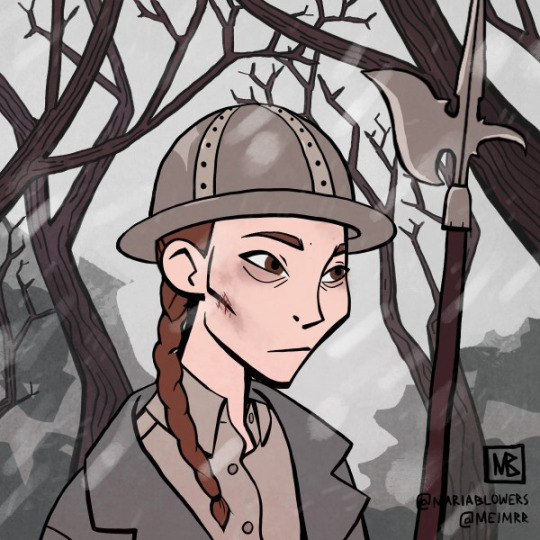
Picrew: Fantasy icon maker
This one doesn't have a name. She was conscripted into a war that never ends. As you can see, she's tired and worn out from the long winter's fight. May be depressing but I find this cathartic somehow. Are the humans fighting fairies or monsters? Does her iron helmet protect her? Iron helmets usually do that...
#war#similar to WWI#world war 1#fantasy#worldbuilding#character design#picrew#like hunger games but less glamorous
3 notes
·
View notes
Text
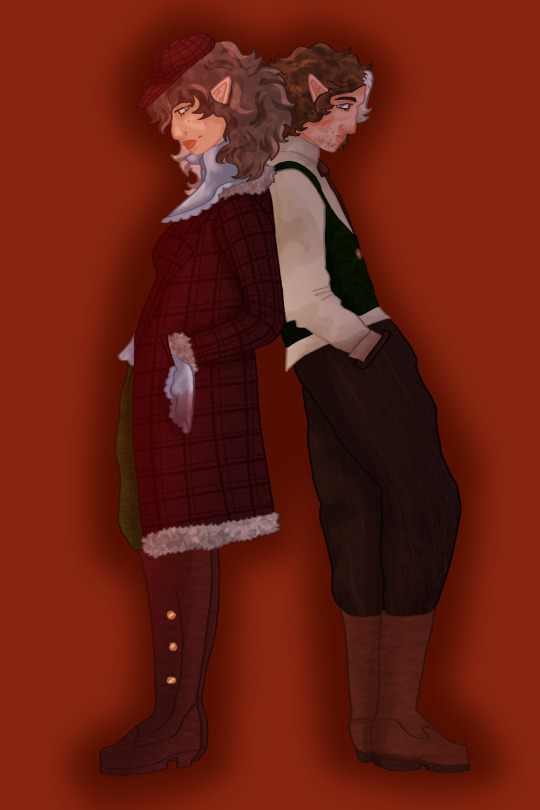
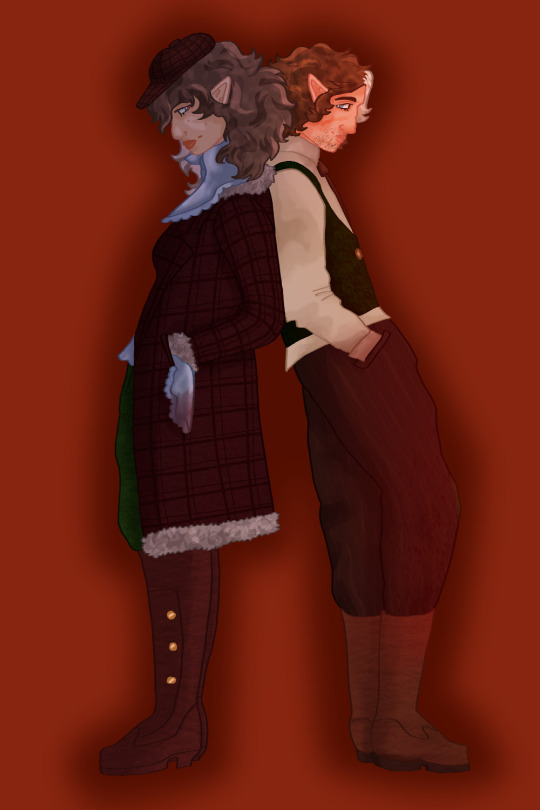
ok. tragically separated wwi era vampire twins.


#seabirds.txt#seabirds.art#mystery twins#gemeos do misterio#q!bagi#q!cellbit#qsmp#i did research 1920s era clothing for this but i based a lot of it off of their mc skins.#cellbit is a sailor turned vampire who ended up in europe during wwi after fighting naval battles at sea and never came home#bagi becomes a journalist to find him and stumbles across vampires along the way not realizing he had become a vampire too#design notes: this all started off of bagi's newsboy cap which was popular in the 1920s with working men. i put her in men's pants because#wanted to give this energy of working a job traditionally not worked by women at the time. <- women started campaigning to work as#journalists notably around the late 1800s and early 1900s (at least in the us and some european countries (couldnt find info on brazil))#i was thinking of nellie bly when thinking of what bagi would be doing in this au! she also has a bandana to hide her neck where her vampir#bite would be and a hanky for blood clean up. perhaps something from home. cellbit is not concerned with hiding his own neck. he's just#wearing a dress shirt LOL. i feel like cellbit would be fully embracing his vampiric tendencies at this point and a part of more vampire#society than human while for bagi it would be the other way around (she's still looking for him in the human world using vampire resources)#that is why he is so bloodstained. i feel like in his free time he would be freelancing detective work for other vampires maybe to gather u#favors or something similar. he's a little bit fancy because of this but still casual enough that there's no suit involved.
50 notes
·
View notes
Text
Explaining the James Logan Howlett (Wolverine) Lore for the new fans :)
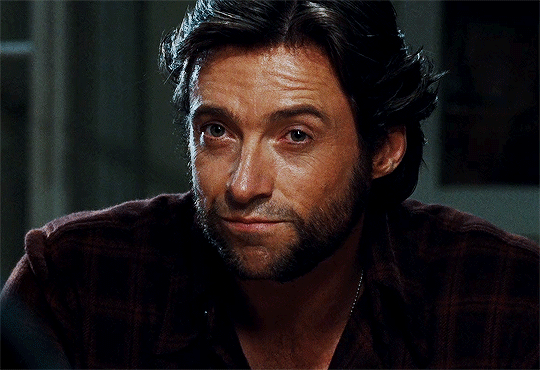
I made this as a little cheat sheet for all the new Logan/Wolverine fans, in case you’ve never seen the movies or read the comics. Hopefully it’ll help with your fanfics and understanding his character better <3
Logan is my favorite of the Marvel superhero’s, and he and I go way back….so far back that my Dad dressed up as Wolverine and I as Rogue for Halloween in 2006. So he holds a very special place in my heart.
Lore - Part 2
Wolverine Comics
If you’ve seen X-men Origins: Wolverine, I hate to break it to you, but that backstory is not canon to the X-men universe. The later movies really screwed up the timeline. So the information here is strictly from the comics.
════ ⋆★⋆ ════
Pre-Adamantium Binding:
His real name is James Howlett, ‘Logan’ is later used as an alias to distance himself from his past.
He was born sometime around 1880, in Alberta Canada.
He is the illegitimate son of Elizabeth Howlett and Thomas Logan. He grew up on the Howlett estate and believed John Howlett was his real father.
His mutant powers first appeared when he was a child. He has accelerated healing, heightened senses, and retractable bone claws.
The trigger was caused by Thomas Logan killing James Howlett. The overwhelming fear and anger made his power manifest, blinded with rage he kills Thomas.
As his biological father dies, he reveals to Logan that he is his true father. The event is deeply traumatizing, and Logan runs away from his family estate. His mother commits suicide shortly after.
Logan has a half brother known as Sabertooth (Victor Creed) who has similar powers to the Wolverine but is more ‘animalistic’
The details vary across the comics but the brothers are always seen as rivals. And often pitted against eachother.
Logan served in WWI, WWII, the Korean War, and the Vietnam War.
He also served in a Canadian military force known as ‘Department H’ that specialized in superhuman affairs. (This was after the experiment, I’ll go into more detail later)
Sometime before the Weapon X program: On Earth-616, Logan had a wife (Itsu) and son in Japan where he was training at the time. They were killed by the Winter Soldier (Bucky Barnes)
Weapon X Program - Adamantium Binding:
The Weapon X program was run by multiple people working in secret for the Canadian government. Originally beginning in 1845, their goal was to experiment on mutants and create their own super-soldiers.
Logan was deceived and manipulated into undergoing the Weapon X experiment. He did not consent to being a test subject.
For some reason the X-Men Origins movie makes it out to be that Logan willingly chose to undergo this process, only to later reveal that he was tricked into doing so.
Before being captured, he was still struggling with his identity, he was close to 100 years old at the time. His life was filled with violence and loss. Making him physically and mentally vulnerable.
He was a prime target for exploitation.
Part of the experiment was to completely erase his memories and replace them with false ones. This allowed them complete control over him.
This also made it difficult for him to recall how he ended up in the program to begin with.
I repeat: they completely wiped his memory. His whole identity was gone.
100 years of memories were gone.
The bonding process turned his entire skeleton and bone claws into indestructible metal.
Due to his regenerative nature, Logan was not given anesthetic or put under for the procedure. It was excruciatingly painful.
Logan worked as a mercenary for private military contractors. He took on these assignments without fully understanding their implications because of his fragmented memory.
Sometime later he became a member of X-Force, a private military unit (affiliated with the CIA) that dealt with incredibly violent operations.
The purpose of the project was to create an unstoppable killing machine. With their end goal being to erase his humanity all together. However Logan’s mental fortitude allowed him to resist the conditioning and make his escape before it was too late.
After escaping, Logan developed a mistrust with authority. And just people in general. He felt deeply betrayed by the Weapon X program. And he struggles with the fear of being used as a weapon.
The escape and aftermath of Weapon X:
After everything Logan went through, the intense trauma and confusion significantly impacted his actions and mindset.
He was left with extreme psychological damage, and behaved more as an animal than a man for the first few years of his freedom. Living in the wilderness of Canada.
Quite literally a feral man. He lost touch of his humanity. Embracing his animalistic abilities, turning him into an apex predator.
Logan has the ability to enter something called “Beserker Rage” which he becomes entirely driven by animalistic instinct. Turning him into an unstoppable force and exerting himself for very long periods of time.
Think of when you see him running on all fours…
Over time, Logan began to regain bits and pieces of his humanity. He was later discovered by Heather and James MacDonald Hudson who took him in and helped him recover physically and mentally.
(Logan actually fell in love with Heather, and James became his best friend. They were the closest thing he had to a family)
After he recovered, he was recruited by the Canadian governments ‘Department H’. They were responsible for a lot of his training and became a key member in Canada’s superhero team: Alpha Flight.
This is where he took on the code name “Wolverine”
His time with Alpha Flight was short lived. And soon he was approached by Charles Xavier, who was looking for mutants to join his X-Men. He recognized Logan’s potential and offered him a place on the team as well as the promise to help him regain his memory.
Logan accepted, and his time with the X-Men marked a critical and significant moment in his life. Under Xavier’s guidance he was able to rebuild his identity and gradually piece together his past. All while fighting for the rights of mutants.
Being part of the X-Men gave him a sense of purpose and direction. Although his main goal had always been to uncover what he had lost, which was himself. He still struggles with trust and relationships, but eventually forms strong bonds with the other X-men.
His past with Weapon X still haunts him. And he has vivid and terrible nightmares about what he had done and what was done to him.
I won’t go into detail about his time with the X-men because that varies a lot across the comics. Just know that he had a love-hate relationship with them, but he ultimately loved them in the end.
Some sad facts about Logan that actually haunt me:
Logan has outlived everyone he ever loved. Family, friends, even his own children. He is so so so lonely.
Immense amount of survivors guilt. He feels unworthy of the life he continues to live.
He suffers from chronic nightmares. Often waking up in a violent and panicked state.
Deep-seated fear of abandonment that goes all the way back to his early childhood. He isolates himself to protect himself from more pain.
Tons of self-loathing. He believes himself to be nothing more than a killer. He thinks he is unworthy of love and happiness.
In the “Old Man Logan” storyline, he is tricked into killing the entire X-Men team. This event haunts him for the rest of his life.
Logan had a long, unrequited love for Jean Gray. He has watched her die multiple times, and each time a piece of him dies with her. On one occasion, he even had to kill her himself.
When he succumbs to “beserker rage” he loses control of himself. And the aftermath horrifies him. He is even afraid of himself at times and one of the reasons why he distances himself from others.
Some happy/soft facts to make up for everything you just read:
Logan is incredibly fatherly at times, often taking younger mutants under his protection and guidance. He becomes a mentor to them and looks out for their well-being.
In one of the comics he takes a young girl (Jubilee) to the mall and followers her around carrying her bags. He loves doting on her and I find it so adorable.
He also teaches another mutant named Kitty how to dance.
In one mission he is tasked with taking care of an infant, Hope. And he is incredibly gentle and tender with her. Cradling her in his arms and being fiercely protective.
He has a deep love and connection with animals. Especially ones that have been mistreated or misunderstood.
Caring for an injured wolf, he nurses it back to health and releases it back into nature.
He also adopts a stray, abused dog at one point.
In one of the timelines, he funded and ran the ‘Jean Gray School for Higher Learning’ He was the headmaster, and was dedicated to protecting and teaching young mutants.
In one scene he literally makes pancakes for all the students. I love him so much.
His relationship with Nightcrawler (Kurt Wagner) is very brotherly. They share alot of respect and understanding for each other, and Nightcrawler often serves as Logan’s moral compass.
His happiest memories are when he was training in Japan. And he has a deep appreciation and admiration for the culture. Taking on the samurai code of honor, and respecting its discipline and humility.
His entire relationship with Laura Kinney (X-23). Essentially his daughter. Taking on a father-figure role for her.
In one of the comics he organizes a birthday party for her, knowing she never had one. He goes all out and it shows just how much he loves her.
Logan has a great sense of humor. Often dry and sardonic, he’s known for his quick wit and playful banter. Which adds a layer of warmth to his otherwise tough persona.
He is very fond of life’s simple pleasures. Which reflects his inner desire for peace and normalcy. He values the little things that make life enjoyable.
His numerous acts of kindness towards strangers. Logan is compassionate at heart.
He doesn’t comfort others with his words, but rather his presence. Logan has a very unique understanding of grief and tries to give others relief in knowing they aren’t alone.
WOW okay I wrote way too much. Tbh I actually cut a ton out of this but if anybody wants a part 2 I’d be happy to share more. Shoutout to my brother for helping me source all this with his comics lol.
If you read all this, you’re a real one. And I’m so glad we’re all witnessing the Logan Howlett Renaissance
#logan howlett xmen#james logan howlett#x men comics#wolverine#deadpool and wolverine#hugh jackman#logan howlett x you#logan howlett#logan howlett x reader#marvel
2K notes
·
View notes
Text
The bayonet thing got to me again. You get ordered to bayonet charge and you take your bullets out of your gun so you don't accidentally fire on your mates. But then you take the bayonet off and use it to staple your goodbye letter to the wall because for all you've basically been sitting on top of the Turkish trenches for 4 months, you know you won't get close enough actually use the bloody thing on an enemy.
#gallipoli movie#i wish a was more familiar with aussie politics of the 70s/80s but apart from the 'i'm not racist but' racism it all seemed fairly accurate#the wall of bully beef made me cackle they had one at te papa just like it#poor guys#the difference/similarities between german and anzac propaganda in wwi are really interesting
0 notes
Text
So, you know how Edwin screams for Charles as he’s being dragged back to Hell? Because he’s scared?
I was thinking about why, and it’s obvious. No big brain moment here. Someone you care about, who you know cares about you in return, brings even the smallest amount of comfort in situations where you are scared. They make you feel safe, so when you’re in danger you want them near you.
Edwin screams for him while being dragged away to Hell, and calls to him when he’s strapped into Esther’s device before the torture starts.
Yeah, we already know that, but I noticed something yesterday.
When you’re thinking about the show in general, Charles is the one who does the physical rescuing and protecting. Edwin’s best way of doing that is to make sure nothing goes awry so Charles won’t have to rescue someone. He prevents the danger from happening the best he can, while Charles charges at the danger if he has to. Edwin actually calling to Charles for help more makes sense given how their methods of helping each other differ.
But yesterday, I was working on something, and I like to listen to the show in the background sometimes (gotta boost those numbers for my boys ✌🏻). I can typically finish the whole show in a day cause it’s not long, so I started it at the beginning.
While listening to them tussling with the WWI ghost, obviously Charles yells, “Edwin! Hurry the fuck up!”
It’s an instruction and emphasis of the urgency and the need for speed in this situation. Telling someone to hurry up is used in all sorts of contexts, serious and unserious. You might say it with frustration if you were trying meet a deadline with a partner, or angrily while playing some video game that has timers, or with concern if you were waiting for important updates on the conditions of an injured friend.
Charles is a combination of them because the situation has been getting out of hand and he can’t do anything about it. He needs Edwin to cast the spell to break the curse.
But it’s while Edwin is saying the spell that Charles yells just his name. It had always created a feeling in my chest, but I couldn’t pinpoint it.
Listening to it with headphones (multiple times) and while not being distracted by the visuals allowed my brain to focus on just the voices, and how I felt while listening to them. I’ve listened it so many times over the last month, and I finally managed to fully figure it out!
The roughness in his voice from yelling so loud. The desperation that seeps into it. The way he enunciates his name, stress on and the pitch raising on the second syllable, similar to the way you'd ask a question, when the stress is usually on the first syllable, and the pitch usually goes down.
This is maybe the only time in the entire series where Charles sounds scared (excluding flashbacks). I don’t mean the “worried about someone” type of scared; we get to hear that a couple times, mostly when Edwin is taken back to Hell.
But no, here he is scared for himself.
He’s gotten thrown around. He’s gotten choked. He’s gotten knocked onto the ground on his back, being pinned down by a malevolent ghost of a soldier, who also has a knife and is very much trying to stab him right now.
Charles has done everything he can. Now, he just needs to not get hurt until Edwin breaks the curse. But that’s easier said than done when your opponent has basically every advantage. He’s struggling! He has been struggling! And now he's about to be stabbed!
He yells to Edwin because he’s scared, and he knows Edwin will do everything in his power to protect him in a dangerous situation, just as Charles would for him. It’s cry for help instead of an instruction.
But it's also a reassuring gesture for himself.
Edwin is there. He trusts Edwin. Edwin is his safety.
He has been since he met him in the attic, and became the first person in a very long time, maybe ever, to show so much care, and protectiveness toward him, after everyone in his life had hurt him or had watched him be hurt and did nothing.
Edwin won’t let anything happen to him. Edwin is going to save him.
And he believes it despite his fear, and Edwin does!
His means of doing so look very different from Charles’, but it’s through breaking the curse that he’ll save Charles rather than trying to fight the ghost off of him. That won’t work. Edwin can’t physically do that, and it wouldn’t stop the ghost from continuing to attack them. So despite him being several feet away casting a spell instead of running to Charles, he is protecting and saving him. And Charles knows that too.
It creates a weird fuzzy feeling in my chest to know that Edwin is the person Charles thinks of when he's scared. It's obvious that Edwin sees Charles as safety, so it feels rarer to see the opposite on display. They are each other's safety, and that is fucking special.
(ko-fi)
#dead boy detectives#thoughts: dead boy detectives#the case of crystal palace#charles rowland#jayden revri#edwin payne#george rexstrew#payneland
292 notes
·
View notes
Note
I've got a world-building/combat question. I have these two warring nations in my setting, both medieval-ish tech levels. One of them figures out how to make magical flying craft that are basically WWI airplanes. The other country invents dragon riders in response. Since then, they've been at war for ~60 years. I'm trying to figure out how the heck an air force would alter medieval combat strategies. If you've any suggestions, I'd appreciate it
The first, and biggest world building problem is that magic is part of your overall tech level. Ironically, Diskworld is an excellent example of how magical technology can basically function as an alternate path for social and technical development, though, honestly, a lot of high-magic settings tend to have tech leakage from magic.
One of the more common examples that comes to mind are “magical radios.” Either it's an enchanted device that allows person to person communication, or it's direct telepathic communication, but whatever it is, it serves a fundamentally similar role to a handheld radio, or (depending on how it works) a phone. The thing is, it's functionally a magical replacement, and it would affect society in much the same way those technologies have.
This is a long way to say, if your magical combat technology has WWI-grade planes, there is a very real possibility that a lot of your warfare is also going to be at a similar magi-tech level, if not more advanced. Having written that, I'm reminded of The Red Star comic series; though, that has a heavy Soviet aesthetic, and is not-at-all medieval.
Again, it doesn't really matter if you have fully-automatic firearms, or if you have a bolt thrower that conjures and propels crystals at hyper-sonic speeds into your foes. If they have a similar rate of fire, and similar accuracy, the meaningful change is texture. Your characters might see tiny crystal fragments shattered on the floor, or embedded into walls, instead of bullet holes. There may be no smell, or conjuring the crystals might leave a different odor. A handheld lightning projector might leave scorch marks, and a scent of ozone, for instance.
Magic might also factor into armor and defenses. If you can use a magical ward to dispel conjured objects, that might be extremely useful for fortifying specific targets against incoming conjured attacks, but it would likely be wholly ineffective against the lightning projector, or some other kind of directed energy beam weapon.
“Inventing,” dragon riding as a response to someone else making a magical airship, does strike me as an odd cause-and-effect. If dragon riding was that easy, it would seem likely that someone would have militarized them long before that point. Inventing flying objects that could function as a hard counter to dragons feels a little more natural. Or, magical, AA installations. Though, this is something that could probably be finessed, if you're really committed to the setup. It's also worth remembering that air superiority is an extremely potent advantage, even if you're not sure what to do with it, meaning that if one side suddenly had fliers, and the other side couldn't come up with a counter in short order, they'd be picked apart, and the war wouldn't have this 60 year timescale.
If it seems like I went to ranged weapons very quickly, there's a simple reason. You can't joust from a plane. Your options are to either propel objects at people, or drop things on them from above. Dragons also (usually) have the option to breathe fire on them. Now, firearms did exist in the late medieval era. So, that's not that far out of range. I'm less sure of the invention of bombs. At least, of the variety you could deliver to your enemy on the battlefield. Though, it occurs to me, you could probably use a catapult or trebuchet to deliver an explosive payload, if the explosives were stable enough to survive launch, but sensitive enough to detonate on impact. (Of course, if you have some kind of magically primed explosive, that stays stable until it is ejected from the catapult, and then explodes on impact, that would work.)
Looping back to the timescale again, this would require some pretty potent defensive capabilities. A dragon, with the ability to breathe fire, and the capacity for strategic thinking, could easily starve out an entire kingdom, simply by making a habit of torching all the cropland it could find. It doesn't, particularly matter if it gets all the food, so long as it torches a meaningful percentage of the available crops. When you have farmers going hungry, you're going to see food production dipping, exacerbating the problem. When you have soldiers going hungry, they're not going to be able to fight as effectively. When you have the peasantry going hungry, you're going to see civil unrest, and probably rebellions coming for their lord's head. You can't wage a war against a hostile nation under those circumstances. (In fact, there were multiple peasant revolts during the Hundred Years War, which basically stalled out France's ability to fight. England also suffered multiple peasant uprisings at roughly the same time. Though, those were motivated by taxation, which ends in a similar place.)
A related concept that's somewhat hinted above, is that wars are expensive, and both France and England found themselves facing uprisings because of taxation needed to support the ongoing war. (The irony being that both nations encountered this at roughly the same point in history. Roughly 40 years into the war.) A war that's been going for 60 years will likely have ravaged the economies of the involved nations. This isn't necessarily something that your characters would be aware of, unless you expand the context to show non-wartime economies.
The simplest explanation for why this happens is that any money you spend prosecuting the war are products that you never see returning value from. The money itself doesn't leave the economy, but the natural resources, and labor required, are expended non-productively (from the perspective of economic growth.) So, if you have a peacetime merchant, they're moving money around, but they're paying for their goods, and then those goods are going to consumers, who may also be contributing to economic activity with those goods (this even applies for food, you can think of that as a necessary component to any productive activity.) If you're a wartime merchant, selling weapons to the military, you are contributing to economic activity when you buy the weapons, but when they're sold to the crown, that's no longer productive. Those weapons leave the economy and never return. Worse, any soldiers who are permanently wounded, or killed, are also removed from the economy. Over time, this can destroy the most prosperous of nations. (To be clear, this is more advanced economic analysis than anyone in the middle ages would have had. So, the idea that wars are expensive was understood, but the exact reasons it slowed the economy were not.) And, this kind of thinking is another form of technological advancement. Ideas for understanding complex systems have become more intricate and detailed over time. While it's not the concept of, “invention,” that you might be used to, it is a similar form of progress.
So, how would this look in your world? There's a lot of potential consequences, most of which are not contradictory.
An impoverished lower-class is very likely. Whether that includes wounded veterans or not is a little more up in the air, though after 60 years, military pensioners, and those who suffered life-altering injuries on the battlefield are likely to be a common sight, either on the street or in the poverty line. (Especially if the crown is willing to enforce drafts and conscription.) At this point, that might be a very real possibility.
A struggling aristocracy is also likely, with former major power players who've declined into poverty. This might take the form of borderline abandoned estates that have been taken over by the crown or squatters. (Probably not both at the same time.)
Serious inflation is likely (and could be why formerly stable guild members, merchants, and even some of the aristocracy might now find themselves struggling.) I realize this point isn't something most really think of when you're trying to write a fantasy world, but it's worth considering. More likely this will be seen in food prices having increased over time. So the major symptoms you'd likely see would be decaying structures that no one has the resources to maintain, rising food prices, and generalized poverty. Even in a fairly magically advanced setting, a lot of these things would, likely, still happen. Of course, if the dragons have been used to destroy the agricultural base, things would be even worse in that nation. To be clear, food and taxation riots are not off the table there.
This is sort of a non-sequitur, but if you have a setting with classic transmutation (lead, or other base metals, into gold), you would actually see inflation with every batch of transmuted gold hitting the market. It's sort of an amusing note on the fantasy of being able to produce as much money as you want, but ultimately, it's actually harmful from a macroeconomic perspective. (Basically, the same reason counterfeiting is a problem.) Though, it is a possible hook for criminal groups in one of those nations, producing counterfeit gold via transmutation.
There's also a real world example from 2020, where a jewelry company had fabricated “fake,” gold bars as collateral to secure loans. In total, they claimed to have 83 tons of gold used to obtain loans worth over 2.8 billion dollars, from 14 different creditors. Except, when they defaulted on those loans, and were forced to hand over the gold, it was discovered that these were in fact gold plated copper bars.
I realize the question was about the flying forces specifically, but so long as that advantage is dealt with quickly, and neither side is able to monopolize air superiority, that's not going to change nearly as much as having that level of magical advancement would on its own, and of course, the general consequences of having a war that's been going on for long enough that multiple generations have died on the battlefield. That's going to a bigger effect on your world as a whole.
-Starke
This blog is supported through Patreon. Patrons get access to new posts three days early, and direct access to us through Discord. If you’re already a Patron, thank you. If you’d like to support us, please consider becoming a Patron.
#writing reference#writing advice#writing tips#how to fight write#starke answers#Starke is not a real economist
208 notes
·
View notes
Text
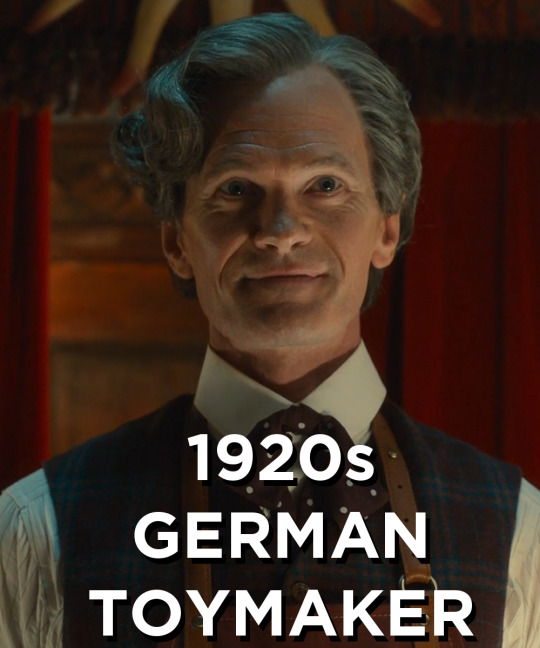

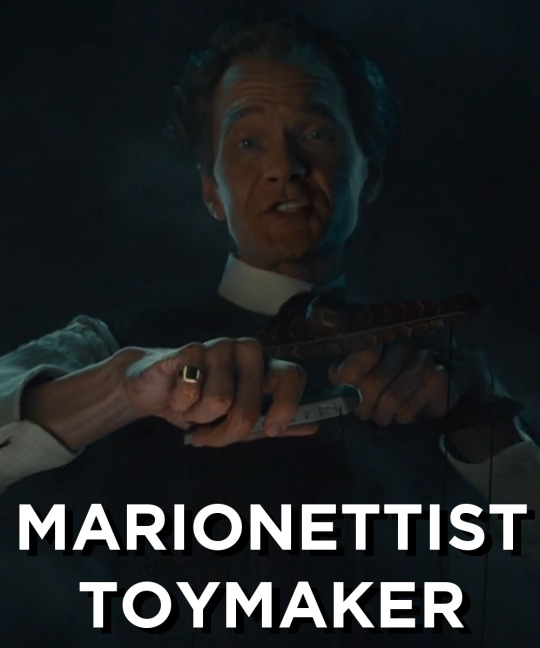
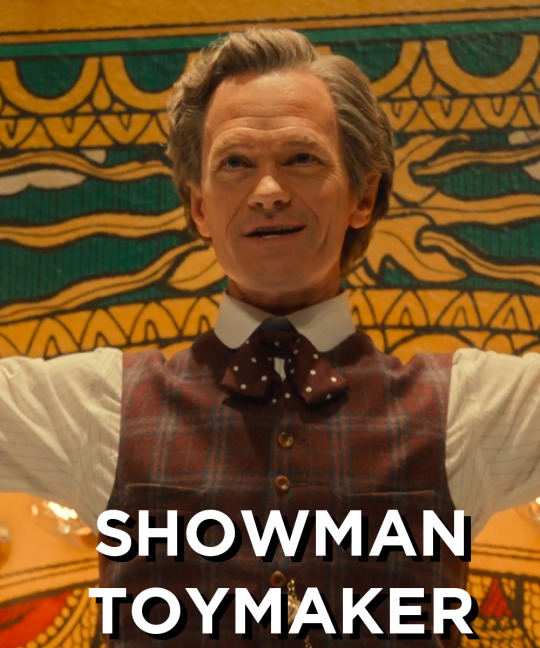
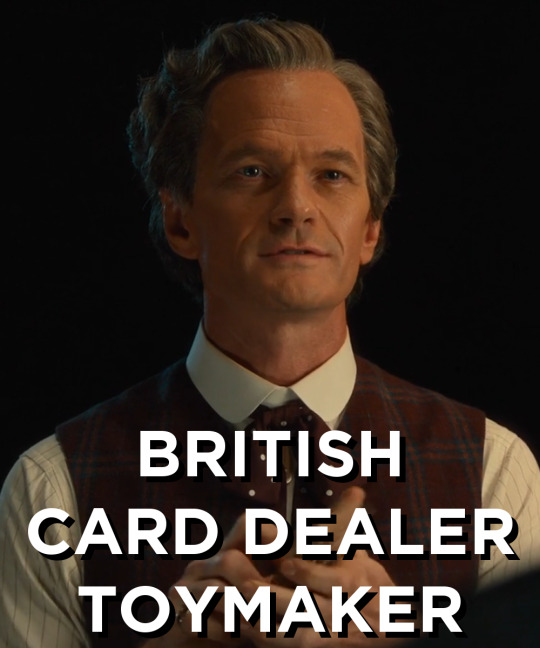
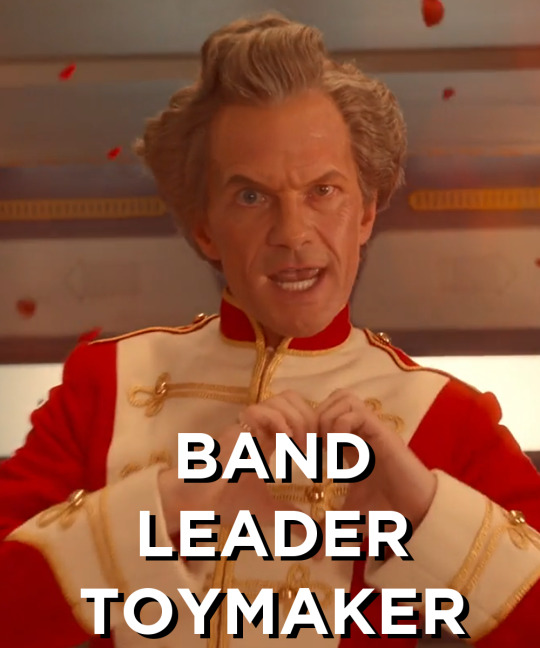
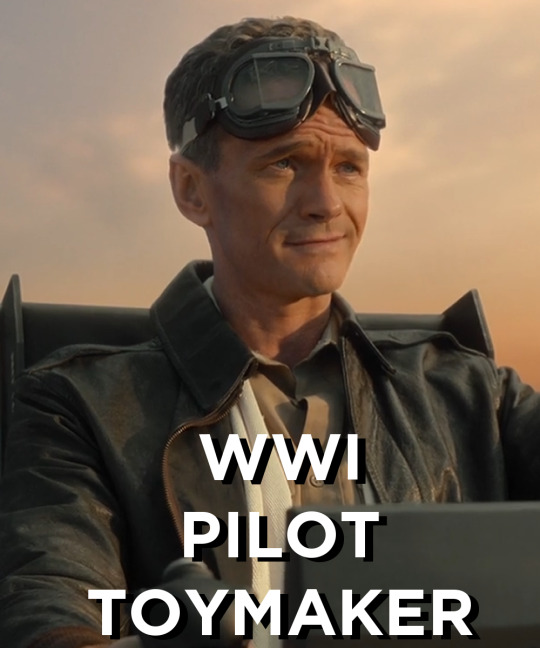

so those of us who've been writing for and discussing the Toymaker have found it a little tricky at times to discern the Toymaker's characteristics, given how often he changes up his accent, appearance, and temperament!! so, we developed a very silly solution 🙈💖 what's more fun that arbitrary categorisation?
these are the different 'facets' of the Toymaker we've noticed - or rather, the characters he plays - and the shorthand names we use for him!! each name corresponds to a particular presentation of the Toymaker, largely tied to changes in voice, appearance and personality. there are moments where these distinct characters bleed into one another! we have:
1920s German Toymaker: the playful, teasing, pseudo-German speaking Toymaker who sells Charles Bannerjee Stooky Bill, and who menacingly juggles at the Doctor and Donna. this is the Toymaker at his personal best: fully invested in his character and thriving in a toy-themed performance. 🧸
French Cabaret Toymaker: the charming, lipsticked, French-accented dancer who accosts the Doctor on the street and sways amid the mayhem of The Giggle. this is a Toymaker who revels in chaos and destruction, and who is equal parts stunning and disquieting 🕺
Marionettist Toymaker: the frightening and severe puppeteer who grows to an impossible size, pulls marionette-Charles' strings and speaks in rhyme. this Toymaker feels the most similar to the original Celestial Toymaker played by Michael Gough! although superficially similar to other Toymakers, his hair is noticeably different and his demeanour is far more sinister 🧵
Showman Toymaker: the volatile ringmaster whose emotions shift on a dime, and who seems equally torn between performance, play, and injustice. this Toymaker is marked in contrast to Marionettist and 1920s German due to the occasional appearance of his American accent, and the apparent sincerity with which he delivers his show for Donna. 🎪
British Card Dealer Toymaker: the cool, calculating cardician whose respect for the game overshadows any desire for drama. much like with Showman, little glimpses of the Toymaker's other characters peek out here, but this Toymaker has a marked seriousness about him that's only knocked by his excitement upon gaining an advantage or winning. 👑
Band Leader Toymaker: the impossible menace with a distinctly feral energy. this Toymaker is a sadist: causing wanton pain, destruction and murder and loving every moment of it. Spice Up Your Life indeed 🌹
WWI Pilot Toymaker: the furious child who refuses to lose. this Toymaker is one who has grown frustrated with those around him who won't play his games, and these frustrations make him unable to maintain his previous playful persona: instead, we see lashings of anger coupled with violence, and the notable sadism of Band Leader 👨✈️
(Bonus) Flat Toymaker: the loser, and the lost little boy. i will admit, this was originally because i wanted an even set 😂💖 however, there's an intriguing moment of vulnerability from the Toymaker here, when he begs the Doctor for mercy. for a moment, we get a look into that 'vastness that will never cease' beneath all of the Toymaker's pomp and frills, and we see how truly frightened he is 🎁
#i'm very interested to know how other people mentally categorise these different character performances by the Toymaker#it's fascinating that we can never truly tell what his 'authentic' presentation is - or if he even has one as he's defined by gameplay#someone ought to design a tarot set or something similar based on the different types...👀#also yes i'm aware i'm knocking on the devil's door by drawing lines between “”versions“” of the same character...i remember the Once-ler 😂#if the Toymaker can canonically read selfcest fanfic for the Doctor(s) then i can comment on the Toymaker(s)#the toymaker#doctor who#the giggle#charles bannerjee#the doctor#donna noble#stooky bill#dw#neil patrick harris#starleskatalks#long post
190 notes
·
View notes
Text
Everyone keeps talking about "traditional villains," but in retrospect, I wish Disney had gone in a different direction for the Revival Era. Hear me out...
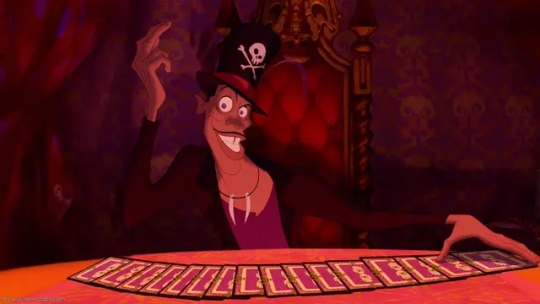
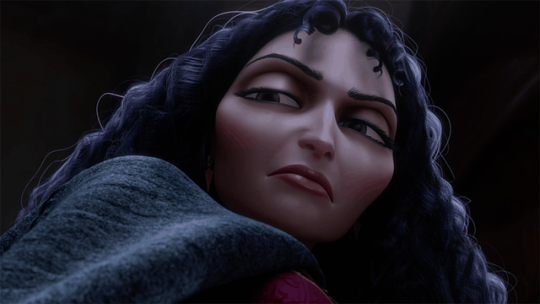
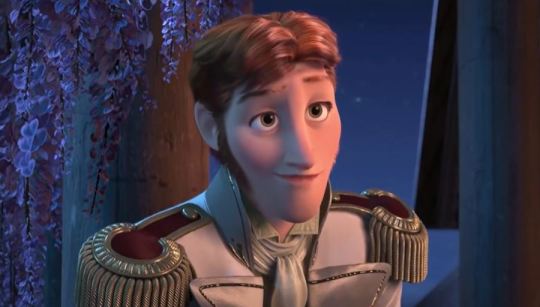
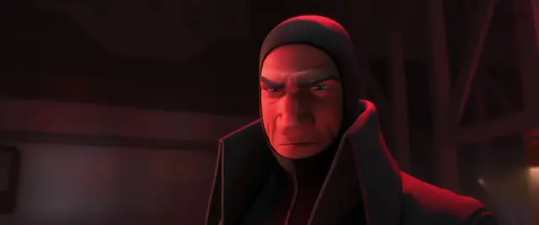
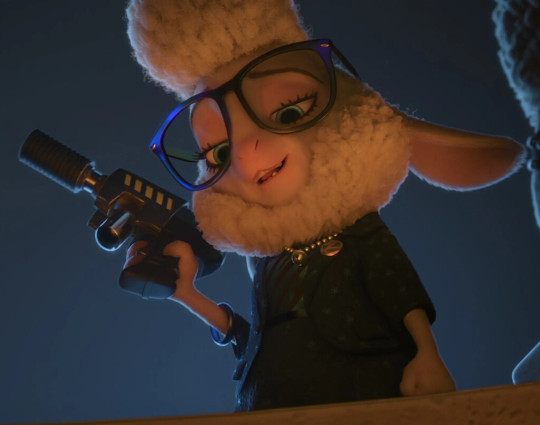
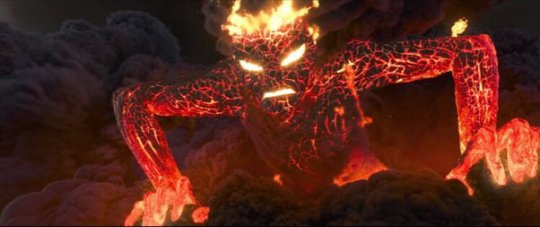
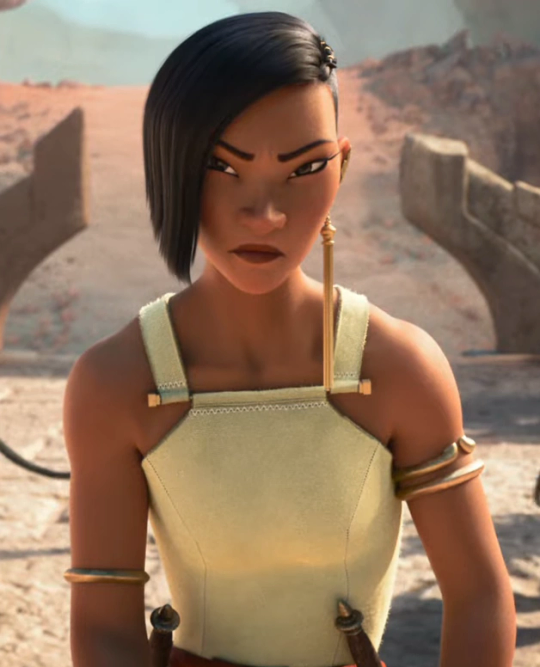

King Magnifico's failed characterization and poor writing in "Wish" really bummed me out. I was looking forward to a complex villain who was kinda right. I was hoping it could usher in a new age of Disney villains who were more grey than black and white, who made the characer grow as a person because they challenged their perspective. But then I realized that the opportunity existed in earlier revival-era villains:
Dr. Facilier is a villain first and foremost, though thinking back on it, I do think he is kinda proto-Magnifico, granting people's wishes, only for them to find that what they wanted isn't what they expected. I do wish he tied a bit of truth in with his scams, mentioning (similar to Magnifico) how people's dreams are very difficult to achieve--especially in the post-WWI American South, particularly POC. Naveen is generally assumed to be a POC himself, so he could juxtapose this viewpoint as someone who's never really had to experience such hardships. Dr. Facilier could still be 100% villainous, but further emphasis on dreams, wishes, and hard work would be part of his character. However, this is the reverse of "Wish"; Tiana has already worked hard, but she's lost a lot of her innocence and light-heartedness trying to achieve it, thus causing her to reevaluate how important love is and how she may not have realized it, being more practical about her dreams. It all starts with a wish.
Mother Gothel was already right; the world can be dark and cruel, and will destroy any light it finds. However, similar to Magnifico, since she's completely evil, the protagonist she goes against doesn't really change to understand what she's saying. Rapunzel doesn't see the world as dark or dangerous anymore; it's the opposite, thanks to her experiences. Because of this, I do wish Rapunzel did have a bit more negative experiences independent of Gothel to prove Gothel's point rather than it being "hey, she's just saying that because she's the villain." Maybe Rapunzel tries healing someone and people start lusting after her hair.
Hans is DEFINITELY a missed opportunity. He was the anti-Anna; isolated and alone, and he became bitter and cruel because of it. It's mentioned that the deleted song "More than Just the Spare" was removed because it made Anna too much like Hans. I don't think that, and if anything, it furthers my point: Hans gave up on his brothers, who he felt overlooked by and pestered by (he doesn't even mention his parents). Maybe give Hans less brothers and feature them a little in the movie so we can see how they interact with Hans and how it's a "what could be" for Anna and Elsa. His evil character is exactly what Anna is trying to avoid, but she understands how he became this way rather than it simply being for shock value.
Yokai was a great villain to me, but the reveal happened too late. I'd have loved seeing a more thorough exploration of his character and parallels to Hiro (which were done great in the film; I just wish it was expanded on). Highlight how people quickly forget about the dead and don't always learn from history, how there's this cycle of loss and hatred that you have to break.
Bellweather was on a power trip, but I do wish she had a storyline similar to Judy and Nick, since--in an interesting twist--they come off as more interesting and complex than the villain. She doesn't really say what made her act like this, and comments that "fear always works." I wish we got more of that, especially to play the two sides card; Zootopia is mainly predator-phobic, and challenges to this, ie predators playing down predator-related crimes in order to get people to look past their identity (and the fact that many predators are in positions of power) may have caused Bellweather's abuse by predators to be overlooked, causing her to want them all gone.
Te Ka is interesting. Despite "Moana" being a great film, I do feel like Te Ka and Maui's storyline was underutilized. It's revealed Maui stole Te Ka's heart for humans, but from what we see, Moana lives in this ideal community where their heritage, culture, and nature is loved and respected. Maybe embrace the fact that Tala is the only one who tells the story of the ancestors and how being they became "comfortable" since they were no longer voyagers, being used to the hierarchy and their stagnant society. Highlighting some humans' selfish natures would've been nice rather than Maui just telling us about it, with Te Ka being a metaphor for the destruction and disregard for nature and love.
Namaari is such a missed opportunity. Despite caring about her community, she comes off as more villainous than an antihero since she doesn't show any sympathy or care for Raya--in fact, she seems rather smug about hurting her. By making her a villain burdened by expectations and love for Fang while slowly being redeemed would've been better to me, shifting her POV slowly, making Raya angry with Namaari but understanding her motives. Having some regret about her choices--even if she believed they were the right ones--would've gone a long way for Namaari's characterization.
Magnifico...well, you already know he could've been one of Disney's most complex villains. Horrifying backstory and powers that are the result of hardwork left him with a jaded view on wish granting. He wants to help others, but has MANY reservations about it.
This is just my POV, of course; some of you may disagree (or feel like the aforementioned villains already achieved what I ask for), but I do hope future Disney villains have that "they're kinda right, even if they're wrong" characterization. It'd be a nice new era as the successor to traditional villains and twist villains--though just like twist villains, this trope requires VERY good writing.
#disney#disney animation#disney princess#magnifico#king magnifico#the princess and the frog#dr facilier#gothel#mother gothel#tangled#hans#frozen#yokai#big hero 6#big hero six#zootopia#moana#namaari#raya and the last dragon#disney villains
311 notes
·
View notes
Note
Your thoughts on Alfreds similarity to Arthur, their dynamic and their father-son relationshio is incredible and so very enjoyable! The way Arthur sees Alfred; his hyperindependent son who rejects his fathers ideas and uplifts his own ambitions, not understanding that while his own ambition and view of the world is not completely identical to his fathers, it's a mirror image in scale and vigour. It is the same old tale of the prince beheading the king, taking the crown and vowing to never become his father, only to come full circle and have his enemies tell him "you're just like him."
Alfred may be the "black sheep" of the family, but not even Arthur can hide his favoritism for the lad. His firstborn is more like him than anyone of his children, and that bears pride, yet fear as well.
Im just trying to say that if you had a million fans, I am one of them, if you had one fan, its me, if you had zero fans im dead. <3
thank you so much! (: in return, i have to say how much i love your art, especially of the pacific siblings + the old man. you bring them to life really beautifully.
and yes! i just love the excellent contradictions that come out when digging into arthur and alfred as a father-and-son dynamic. i enjoy putting a twist on the usual tropes of the 'black sheep' and 'golden boy/crown prince', where it's often two different siblings. here, out of the 🇺🇸🇨🇦🇦🇺🇳🇿 siblings, alfred is the black sheep and the crown prince. he is the estranged eldest brother who seemingly does whatever the hell he wants. he overshadows them all even in his absence. like, for Jack and Zee especially, it's not a flattering picture of Alfred they get from Arthur. Ungrateful wretch, fool of a lad, hotheaded and arrogant, a flash in the pan...etc etc. but even quite young, before WWI or WWII, they realise that Alfred is the only one of them Arthur truly sees as anything close to an equal. that contrast is sharpened by how Arthur treats Matt—who was the 'older brother' they actually knew: the otherwise competent shocktroop of empire and first dominion shouldering various responsibilities. to defy Arthur is to earn his enmity, but also the only way to earn his respect.
like most other nations who become empires—Arthur doesn't truly believe in heirs: the sun never sets on the british empire, no? and when you are an eldritch being given life by the power of human ideas, immortality is a possibility they can't help aspiring to, no matter how much history is littered with the rise and fall of nations once arrogant enough to believe themselves invincible. and Arthur, at the height of British power, allows himself to believe that. for all his shrewdness and study of history, he's not immune to being seduced by that possibility. why shouldn't his empire be different? driven by the power of industrial civilisation that Rome could never dream of. Arthur never wanted Alfred to be his heir because he would never relinquish power willingly (just as the British Empire did not give itself up until the combined weight of world war two, anti-colonial movements and bankruptcy broke its back), but with his defiance, Alfred is the only kind of heir he would respect.
It is the same old tale of the prince beheading the king, taking the crown and vowing to never become his father, only to come full circle and have his enemies tell him "you're just like him."
indeed! i always see a real Titanomachy theme between Arthur and Alfred for that reason; the British and American empires certainly loved to perceive themselves as heirs to classical antiquity after all. the Greek story of the war between the younger generation of Olympian gods and Titans to determine who would have dominion over the universe. Zeus, with his siblings, overthrows his father Cronus— in a manner of speaking, that is what happens with WWII. Alfred is both Arthur's deliverance (lend lease, d-day...) and the one who usurps him: America replacing Britain's prime role in the Pacific, reshaping and redefining alliances with Australia, New Zealand and Canada. in the eyes of many of the Old World nations, Alfred is his father's heir. to end off, here's a short snippet from a WIP i'm working on set during the American Civil War:
Arthur laughs.
“Do I make you do anything anymore, Alfred? Didn't you throw away my name almost a century ago? Did you not loudly announce yourself as a maritime power? That huge uproar you created in the Far East? Bragging to me how you’d done what I failed, dragging another Old World nation out of isolation to rejoin the international community on the threat of war and glories of foreign commerce?”
Alfred opens his mouth—to say something self-righteous and hypocritical, Arthur is certain—but then he lifts his chin coolly.
“As opposed to the actual war you started in China? If anything, with the Treaty of Kanagawa, I proved how one could secure foreign trading interests with both firmness but far more civilisation. You and I," Alfred sneers, “are not the same.”
“An unequal treaty is an unequal treaty— that I will not deny even if I will not give up its benefits. This world is not for soft men or women, and the old warlord that Yao is—he knows that well.” Arthur smiles sharply. “Do you hate the fact that when the other Old World nations look at you, they see my blood running in your veins?"
Arthur imo, is definitely that father who plays favourites. Alfred is his greatest disappointment but also the one he loves the most—in the dysfunctional way that a man who is an empire comes closest to loving the son who mirrors him the most in his pitiless ambition and cunning. Alfred sees himself as a genuine idealist, as someone struggling to be free of his father and all his bad traits, but when Alfred rises to power, Arthur believes he's the only one who truly understands him the most. It's almost the possessive element of 'I gave you life, I named you and made you what you are, and no matter how much you scorn my name, my influence will define you forever.' Father and son, king and crown prince, regicide and patricide—but also creator and his creation made in his image.
195 notes
·
View notes
Text
Why Phryne Fisher is a great character
and why you should love her too:
She's hot
She's extremely athletic (have you ever seen her running in heels?! you should, asap)
The timeless bob cut
The cunty outfits... chef's miss
She's a polyglot
She's a feminist icon with a mindset far ahead for her times (Phryne is the textbook of "Fuck The Patriarchy" imo)
She's a survivor of abuse, constantly blamed herself for the death of her sister when she was younger, was an ambo driver during WWI and still uses all of those experiences as strength to help everyone she can reach out to
She knows how to drive a plane
She's an amazing dancer
Her best (and oldest) friend is a scottish butch doctor (mac would totally love he/him pronouns btw)
The two cab drivers she befriends after coming back to Melbourne are communists (I love my two red-raggers)
Her "butler" (because phryne always treats them like equals to her, so it's always assistant or friend, never any word/expression that creates an hierarchy) being named "Mr.Butler", who's also an expert in guns and always a good comedy relief
The shy girl that once dot was that she helped on growing into a strong lady, leading to her on finding love (they better name the kid phryne if it's a girl, or I'll do it myself)
Aunt P and Phryne interacting is always the hardest giggles you will ever get
Literally adopted a pickpocket girl she saw in a train station and never judged her. In fact, she understood her, her struggles and fears, and gave her a new life under her wing (now watch jane calling phryne and jack "mom and dad" whenever she sees them sharing a moment or two, lmfao)
Every single Phrack moment... They're a match in heaven (and nathan and essie's acting is sooo good)
Also about Phrack: Both characters being so similar morally, I love it
The adventuress club being formed by many strong and independent women from different backgrounds, with phryne on the wheel of the boat, to celebrate their achievements and goals (and how much they can do for feminism and social justice)
And many other aspects that I'd love to point out, but I don't want this post to be thaaaaaaaaaaaaaaaaaaat long
96 notes
·
View notes
Note
I've read your post about Sidney Beldam (what a man!) and it fascinated me enough to buy (quite impulsively) The Facemaker. Long story short, thanks to you and Lindsey Fitzharris I'm in my history-of-medicine-nerd-era and in gayly-interested-in-WWI-period; and The Facemaker might be one of my favourite books I've read this year. The stories of soldiers! The photographs! The work of Gillies! And reading that he performed the first known phalloplasty on a trans man was a very pleasant surprise, you know.
As an ask without an ask wouldn't be technically an ask, here I ask: Do you have any academic paper or book "with plot" recommendations? Either something similar to The Facemaker or just something about or set during the era?
Ahh I’m glad it’s been so inspiring! Ah hell yes Gillies was on that king shit doing the phalloplasty, really set the bar for transgender medical care of the 20th century!
I’ve got (a lot) more info than you’ve wanted if you don’t mind (I really can’t help myself), WWI and thereabouts is a great place to look if you’re getting into medicine history cos that’s when a lot of rapid change happened due to the war as well as the Edwardians’ newfound fight against germs and with the influenza pandemic towards the end of the Great War. My area at the moment for 1900-1920s medicine is plastic and reconstructive surgery, amputations, shellshock and PTSD, post-war rehabilitation, and the general RAMC. So I’ve got some recs for medicine and treatment for the body and mind around the war!
For academic books with a bit more narrative/soldier accounts as you asked:
Wounded by Emily Mayhew. I’ll admit I’ve not picked it up just yet but I do own it and it goes a lot off soldier’s stories
Forgotten Lunatics of the Great War by Peter Barham. Fantastic read about the stigma of “lunacy” and the psychological hardships men faced returning home including fighting for pensions due to lost limbs and shell shock.
Breakdown: the crisis of shellshock on the Somme, 1916 by Taylor Downing. While I don’t agree with this author’s personal views on the war, it does give soldier accounts looking at how the military alone viewed and responded to shell shock which can be helpful to understand in contrast to the civilian post-war response, especially since PTSD and shell shock are two different conditions and the former wasn’t widely understood almost until the 21st century.
Medicine in the First World War Europe: soldiers, medics, pacifists by Fiona Reid. Cannot remember the exact nature of this book cos I can’t remember if I own it but if I remember right it does have more of a personal accounts type telling.
Testament of Youth by Vera Brittain. Not 100% a medical read but a famous memoir written by feminist and pacifist Vera Brittain about her time before the war and during such as a VAD nurse
Two more clinical book reccs if you’re into the how and why of wounds and such:
Faces from the Front by Andrew Bamji. Very good look into the treatment of facial injuries with plastic surgery, it is at times a bit graphic as there are plenty of photos
War Surgery 1914-18 edited by Thomas Scotland and Steven Heys. Great look into injuries and their pathology, approachable read with clearly defined figures and not just massive walls of text along with an extensive bibliography. I recommend this as well for anyone writing WWI fiction because this tells you how wounds ACTUALLY happened and presented themselves
Purely fictional but with medical themes in nature (off the top of my head):
The Regeneration Trilogy by Pat Barker. Quite well known, but depicts the psychological effects of WWI on various characters. If you want queer themes, you’ll like this.
Johnny Got His Gun by Dalton Trumbo. American anti-war novel about a soldier who horrifically looses his arms, legs, face, hearing, and sight during the war and is confined to a secluded hospital bed at the mercy of doctors and nurses who don’t know what to do for him.
A Month in the Country by J. L. Carr. More queer themes! Tells the story about two WWI vets doing archeological work at a church in the English countryside and their lasting battle with shell shock.
I’ve also got a list of a handful of academic type sources slowly collected over the past months for various medical WWI things. These are only the ones I remembered to save, but I know there were certainly several more:
Website on the detailed RAMC evacuation
Pay to access source on prosthetic limbs in Britain via JSTOR
bibliography for First World War medicine as a kind of jumping off point for more academic papers and medical books
Academic paper reflecting on Britain’s response and treatment of shellshock
Good short article on the care of veterans for work and housing post-war
Continuously updating catalogue containing medical records that detail quite interesting stories like a bombardier receiving hypnotherapy to cure shell shock, hyperlink at the bottom to search database
REALLY good site on the RAMC duties at casualty clearing, advanced dressing, and regimental aid
WIP article on Gillies, Sidcup, and patients written by person whose friend was the granddaughter of Sidney Beldam
Academic article on facially disfigured men reclaiming agency and visibility
Short article on soldiers and disability struggles after the war
Masculinity, Stigma and Facial and Psychological Injuries of the First World War thesis paper
Erskine Hospital records that show the hospital, rehabilitation, and patients as well as limb making. Full collection is held at the University of Glasgow
Relationships between medical care and masculinity
Also off the top of my head, if you’re ever in Edinburgh for whatever reason, you might really enjoy the Surgeon’s Hall Museums as there are thousands of artefacts on display such as antique medical equipment, Victorian dentistry items, 17th century skeletons, and 20th century prosthetics. Literally it is floor to ceiling in the main gallery with jarred organs, body parts, bones, and even most remarkably the preserved upper half of the face, moustache and all, of a WWI soldier which is probably one of—if not the—most fascinating and haunting thing I’ve ever seen at a museum imo. It can be a bit of a shock to the system if you’ve never been to that sort of thing before so take care when going. I’ve been about three times and there’s still a couple items that make me go a bit light headed to look at!
Anyway I know it’s a lot but I hope something in there could be more of help to you! Cheers x
60 notes
·
View notes
Text
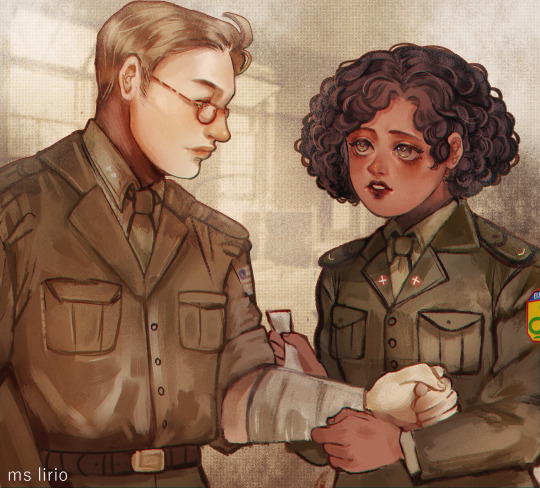
"You hurted yourself. Again."
"I guess I should say: I am deeply sorry."
"Do not act so reckless, Alfred."
"—Promise. And you should take a rest, you look tired."
"I am fine. Do not worry about me."

I have MANY pending books to read, whether diaries, reports, story books, Brazilian Pracinhas and Nurses and much more. But to save time, I decided to just read a few quick articles to prepare this post.
All pointed here is in a historical view.
Brazil was officially the only South American country to send troops to the conflict under its flag.
Historically, Brazil's actions prevailed in Italy. It was where Brazil sent its troops, and its participation in the war was delayed as Brazil wanted to maintain its relations with both sides and remain neutral throughout the conflict. After German and Italian attacks suffered by Brazilian ships, Brazil gave up its neutrality, siding with the Allies.
American military bases were built in the Northeast region of Brazil and Brazilian troops received American training.
"In 1939, with the beginning of the Second World War, Brazil remained neutral, in continuation of President Getúlio Vargas' policy of not defining itself by any of the great powers, only trying to take advantage of the advantages offered by them. Such "pragmatism " was interrupted at the beginning of 1942, when the United States and the Brazilian government agreed to transfer air bases on the island of Fernando de Noronha and along the north-northeast Brazilian coast to receive American military bases (if negotiations had not result, with Vargas and the military insisting on maintaining neutrality, the US had plans to invade the Brazilian northeast, codenamed Plan Rubber).” (WIKIPEDIA)
"Natal, the capital of the state of Rio Grande do Norte, in northeastern Brazil, has a very important strategic global geographic position. This fact made the city host the two main American military bases during the Second World War: the Naval Base and Parnamirim Field – at the time it was the largest US Air Force base on foreign territory.” (WIKIPEDIA)
// Getúlio Vargas flirted with the Fascist ideology even tho, he went to ALLIES' side. 💀
HCs: (don't take them too seriously)
⚠️ Remembering the following content: we are still talking about Hetalia, so my HCs and lore are not absolute truth, but my perception of my oc's participation during the conflict. Even though it has a historical basis behind it. And also, this is historical fiction (ofc, it's hetalia). WWII is an extremely sensitive topic to many. I ask for caution, I will be careful with what I have to say.
— Alfred used his charm and charisma to make Mayara fight alongside him (Good Neighbor Policy). What worked and they formed an alliance based on a mutual exchange of interests.
— Mayara had developed a strange feeling that intensified for Alfred (something between admiration and wanting to be like him, a complex feeling, which perhaps was confused with platonic love and which sought certain privileges in that alliance), even if she was reluctant to give end her neutral stance towards the conflict (something similar to what happened in WWI). She would later do this after torpedoing of vessels by German and Italian submarines, retaliation due to Brazil's accession to the Atlantic Charter; thus, she broke ties with the AXIS and declared war on Italy and Germany.
— In my universe, Mayara also served as a nurse, and spent most of her time with Alfred, often tending to his wounds. Sometimes just chitchatting together or learning about militarism and things like that. He trained her. He was the one who supported her.
— I changed my conception of another topic, which was May's direct participation on the battlefield. I think that Mayara, in addition to serving as a nurse, also fought on the front line when necessary (due to the fact that she was the representative of Brazil) and needed to be on the front line. In my former HC she didn't go to the front. (I disagree with the 2021 me xd).
— I don't believe that Alfred reciprocated any kind of feelings for May. She was an important piece for him, and so he courted her, to secure a new ally. It was a benefits relationship.
— Besides Alfred. There were FEW times where dialogues with England took place, this was due to the participation of Anglo-Brazilians on the English side (if I'm not wrong, in the area of aviation, but I need to delve deeper into the topic). An almost tiny interaction compared to the prevalence of Alfred's actions, which was immensely greater and also generated impacts.
PS: I don't ship BrAme/AmeBra, they are just friends. However, Mayara, as I said, had strange feelings for him at some moments in history (I was reading an article about diplomacy 🇧🇷-🇺🇸, I realized that Brazil had a greater interest in getting closer to the USA for economic and regional power, that is, an admiration that aimed for benefits/just as the US aimed for strategic support/Mayara would support Alfred in anything, as she thought she would get support in return).
I used the word "courtship" as it was stated in this old History book (which I no longer have). Alfred... used his charm against May. Lol.
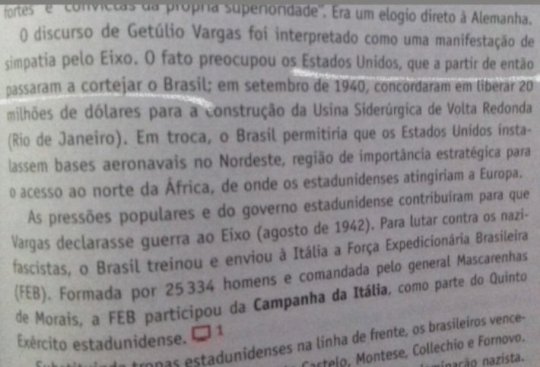
Evidence of a strange obsession with Alfred:
Meet the United States of Brazil:
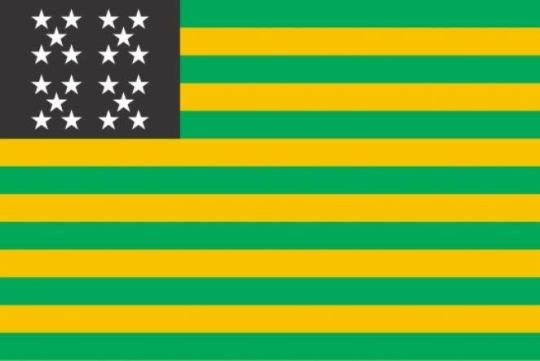
(I showed this damn flag to my dad he got disgusted lmfao)
#aph brazil#hetalia brazil#aph oc#country oc#country personification#hetalia#hws oc#aph brasil#hws america#aph america#alfred f jones#historical hetalia#hws usa
62 notes
·
View notes
Text


Romanian Cuisine
So, the beginning of the month I had the pleasure to spend 8th of March with some friends in Romania and while trying their traditional kitchen I came up with the idea to create some dishes for our Sims to enjoy some delicious Romanian food too! I hope you enjoy it!
Mămăligă - polenta made out of yellow maize flour. Historically a peasant food, it was often used as a substitute for bread or even as a staple food in the poor rural areas.
Ostropel - typical Romanian stew that is primarily made from chicken mixed with a thick tomato sauce. Additionally, garlic or spring onions can be added to the dish.
Tochitură - traditional Romanian and Moldovan dish made from pork cut into small cubes. It is traditionally served with over-easy eggs and mămăligă.
Tochitură de Pui - Tochitură but instead of pork cuts is made with chicken.
Joffre Cake - chocolate buttermilk layer cake filled with chocolate ganache and frosted with chocolate buttercream originally created at Bucharest's Casa Capșa restaurant, shortly after WWI.
Papanași - doughnut-shaped with the doughnut hole on top traditionally fried or boiled, they are served covered in crème fraîche, and topped with sour cherries or jam.
Gogoși - sweet pastries similar to filled doughnuts that are deep-fried in oil and optionally dusted with icing sugar.
Zmeurată - alcoholic beverage produced from raspberry, sugar and alcohol.
Socată - soft drink made from the flowers of the elderberry shrub. It may be non-alcoholic or, usually, low-alcoholic, and can be carbonated or non-carbonated, depending on the fermentation type and duration.
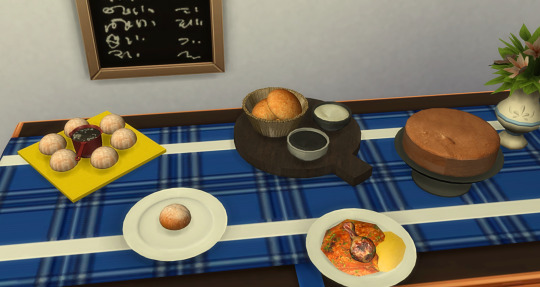

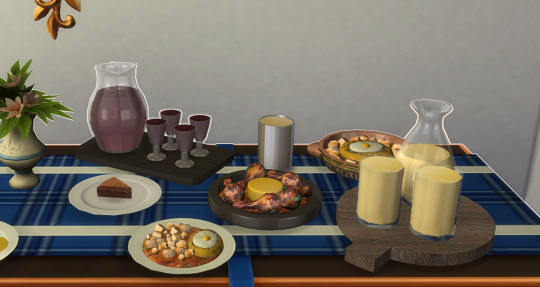
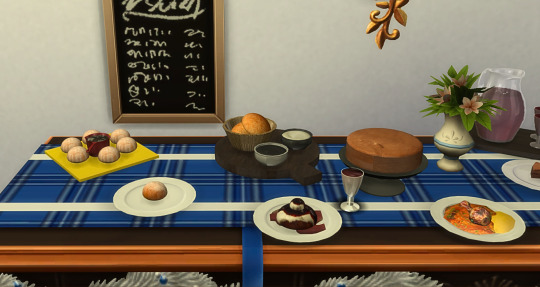
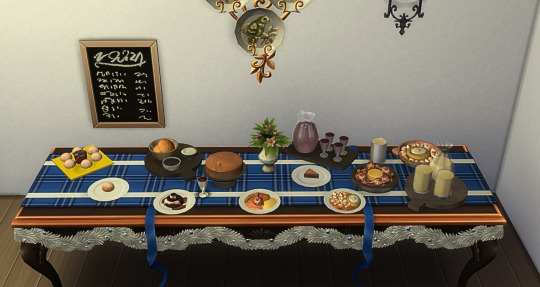
Access for Official Patrons on 30th of March
Public Access on 7th of April on Curseforge
@sssvitlanz @maxismatchccworld
#ts4 maxis match#sims 4 custom recipes#sims 4 custom food#s4 custom drinks#s4 custom recipes#sims 4 custom content#ts4 custom recipes#ts4 custom objects#ts4 custom recipe#ts4 custom content#s4 download#ts4 download#s4 custom content#ts4 maxis mix#sims 4 download#ts4 custom food#s4 maxis match#s4 custom food#s4 custom drink#s4 custom object#ts4 mm cc#s4 mm cc
74 notes
·
View notes
Text
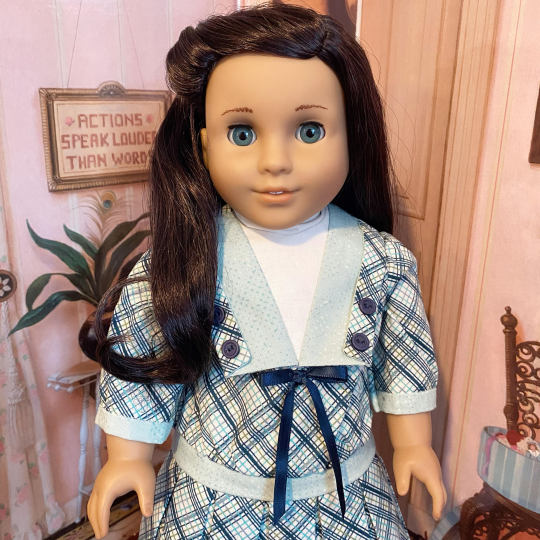
Meet Violet Fielding, my original historical character from 1918 Boston!
I've been doing some workshopping with my custom historical characters because I've been a little bored with AG's historical offerings of late, and because it's a fun excuse to dig into moments in time that interest me personally, but AG probably wouldn't produce a similar character themselves. (I say that, but my 1940's Hawaii character predates Nanea, so who knows! Maybe I'm manifesting some future stuff I can borrow for my gals.)
Violet is the youngest of three siblings. Her older sister Alice is in her early 20's and either a nurse or a Hello Girl, leaning towards nursing because I'm not sure I want her to go overseas and she could work at a hospital in Boston during the war. Her older brother James is 19 and enlists in the Marines once the US enters World War I. I think by Violet Saves the Day, he's returned home dealing with quite a bit of "shellshock" and that becomes a somewhat major theme.
Her parents are pretty wealthy, and the family lives in a brownstone on Beacon Hill in Boston. Her dad is a doctor and mom is a suffragist who also gets involved in causes supporting the war effort. Both parents are very supportive of their kids following their passions and getting themselves out there in this still relatively new century, which is why Alice has been allowed to go to school instead of immediately marrying some wealthy guy.
Vi herself is a precocious and creative kid. I think she likes to draw and paint and generally be crafty and creative, which comes in handy when brainstorming ways she can support her brother overseas and the war effort more broadly. While she's not afraid to get her hands dirty, she does like typically girly things like having teatime and looking at catalogs filled with new dresses. Her book series would theoretically cover 1917 through 1919 or so, and touch on the war, Women's Suffrage, the Spanish Flu, shellshock, and possibly the Boston Molasses Disaster.
Currently I'm trying to come up with a best friend character for her, as she really needs a Nellie or Ruthie in her life with the age difference and both siblings being off doing exciting and scary things without her. There are a lot of different directions I could go in with said friend - fellow wealthy-ish kid feels boring, Boston had a lot of new immigrant communities in the 1910's, some of whom did live in a specific part of Beacon Hill, Boston historically struggles with insidious covert racism but was still a city with a number of prominent Black and Jewish communities - and nothing's quite clicked as perfect just yet.
Violet is a Marie-Grace doll with a Nanea wig. Someone was selling her on a Facebook group a few years ago and I immediately felt like she was a Violet and needed to join my crew. Her last name was inspired by Lady Dorothie Fielding, a British woman who drove an ambulance during WWI and received several awards for bravery and service. Fielding's letters home were published after her death and are a really fascinating look at what it was like on the front lines doing this incredibly dangerous and important work. I used it as a major primary source for an educational interactive I helped develop in one of my previous jobs.
#american girl doll#american girl#american girl dolls#agblr#ag doll#ag dolls#american girl oc#violet fielding
101 notes
·
View notes
Text

I got this ask on main but thought I'd pick it up here, my comics history/fashion ramble blog. I'd been wondering this exact same thing recently, and Google initially wasn't much help—Rocketeer replica jackets describe themselves only as "Rocketeer jackets" and the one Lobster Johnson cosplay thread just suggested ordering one of those.

The most curious part is the double seam and horizonal row of buttons that mark out the entire front as possibly being an unbuttonable "bib", like a plastron front. (Please don't ask how late in the game I worked out that "plastron" is the right word for that.)
The closest genuine Golden Age example of a plastron jacket I found was the military tunic style uniform of Blackhawk, created in 1941.

(Pics from the '52 movie serial (right) really show how awkward it is to combine open lapels + plastron. On a double breasted coat, that chest panel IS the bottom lapel, folded shut.)
Here's the thing: This outfit mirrors that of the Nazi ace pilot he fights in the origin issue, von Tepp (middle). And compare further to the far right: real life WWI flying ace Manfred von Richthofen, AKA the Red Baron, in imperial German Uhlan (lance cavalry) uniform.
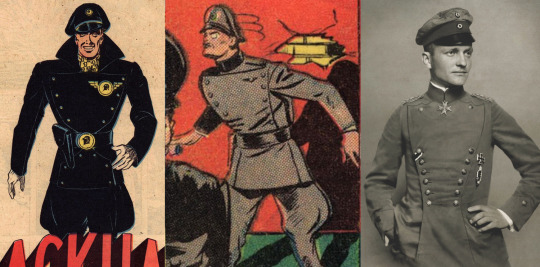
"The Germans had designed such great costumes, we decided to use them ourselves," co-creator Cuidera is quoted as saying in Steranko's History of Comics, which (more dubiously, in my opinion) compares the look to the Gestapo or SS. Breeches or jodhpurs weren't strictly a Nazi thing at the time, but they do add to the overall effect.
Compare two other military tunic themed costumes from 1940, on Captain Marvel and Bucky Barnes. These are asymmetrically buttoned, and switch to a more classic circus strongman look below the waist.

But somewhere around 1975, with the Invaders book, Bucky gets a buttoned bib! There's something infectious about it—the symmetry, maybe. (Even re: the characters we started with; Mignola didn't draw Lobster Johnson with buttons down the right side, but every artist after does. And Spider-Noir wore a sweater under his coat until Shattered Dimensions introduced the double-breasted vest.)
If it didn't reach his belt, Barnes' button-on front + shirt collar combo would resemble a bib-front western shirt, like the one that became the Rawhide Kid's signature look in '56. (Or Texas Twister's in '76.)
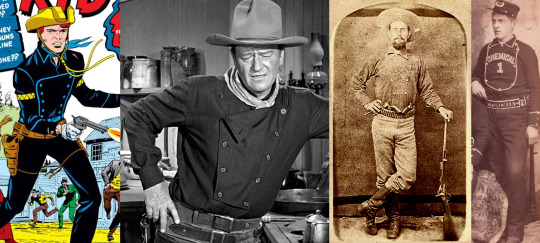
This shirt entered the old-West-obsessed public imagination in the 1940s/50s largely because John Wayne wore it in several cowboy movies. In reality it was rare among cowboys, more common with firefighters and civil war era militia.
Military tunics, Western shirts, alright, but does anything match the style and material and era, or are these jackets a total anachronism? I tried looking into 1930s leather flight jackets and was surprised when the closest-looking results were marked as Luftwaffe.
It took me a bit to work out why: USAF and RAF issued standard flight jackets with a center closure. The Luftwaffe instead let their pilots buy non-standardized ones. The 'weird' double-breasted black German flight jackets were in fact fairly normal (but repurposed) motorcycle racing jackets.
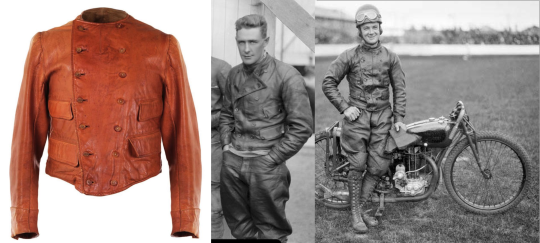
Far left is an English biker's jacket that dates back to the 1920s. Even without the bib, this may be as close as you'll get to an authentic Rocketeer. The jodhpurs were pretty common to complete the look. (What was an early motorcycle anyways, if not a weird metal horse?) The first biker jacket with the now iconic off-center diagonal zip was designed in America in 1928 and yet as far as I can tell, not a single actual pre-war pulp hero wore one.
The greatest weakness of this post is that I haven't been able to find any of these artists' notes on how, exactly, they arrived at similar versions of this iconic Pulp Front Panel Jacket. I'm sure I've missed some things. But as far as I can tell, this jacket is an odd bit of convergent stylistic evolution from the above influences that's picked up enough momentum to now be self-perpetuating.
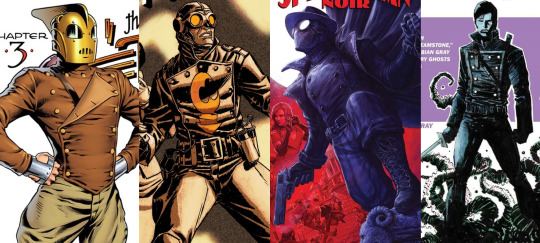
The problem with pulp heroes is that for the most part, they just wore clothes. The appeal of this jacket is actually very similar to what the 1940s thought the appeal of the bib-front shirt in westerns was: It's alien enough to feel "old". It looks like something invented before zippers or synthetic fabrics. It looks formal and militant but also renegade, rebellious. It also looks a little mad-sciencey*. It's a costume, but you can nearly fool yourself into thinking the past was weird enough that you could find something this cool on the rack.
If I wanted to end on some grand point, I could try to argue that there's a thematic throughline between fascist fashion, John Wayne movies, and throwback pulp. A manufactured aesthetic valorizing the violence of a fictional golden age... but I think the noir stylings of the post-Rocketeer comics in this lineup mean that, at least on some level, they know the "good guys" didn't dress like this.
*If I had another couple weeks of time to burn, I'd try to trace the visual history of the Howie coat in popular culture and investigate its possible connections to this. Alas, I do actually have a life.
#thank you for reading. also don't read golden age blackhawks the racism is awful even by era standards.#comics history#costume taxonomy#<- forgot I had that tag.#not to be like ''in MY favorite comics...'' again but may I point out that Hellboy and Robo and Tom Strong just wear... clothes#like. yknow. A pulp series that had confidence in itself rather than trying to cosplay as eras it thinks were cooler might do-#[I am yanked offstage before I can restart that rant]#the rocketeer
137 notes
·
View notes
Text
ruminating on an elusive similarity between long distance resonance of whale calls on the deep sound channel, lightning whistlers on the telephone lines, and the propensity for marshes and bogs to spontaneously burst into cold flame. they all share a sort of anthropomorphization of scale, which obscures the scale of anthropic impact, and the scale of the distance over which your actions or our collective action can have an effect on the ringdown phase of a resonating body
a whale, which is perhaps twenty times larger than us, experiences the world as being twenty times smaller. a planet with 25,000 mile circumference is more like 1,250 mile circumference to creatures who can hear each other talking 13,000 miles away on a quiet day, the type of quiet day we haven't had since WWI. circumnavigating the globe is not insurmountable at that scale, and imagine you could shout in tokyo and be heard in sao paulo
meanwhile, while sonar was being developed, when we didn't know whales could call, the navy called these unexplained recordings "the jezebel monster" and a biological source for the sound was roundly discounted until it was proven. meanwhile, the wires carrying a phonecall from alaska to canada are picking up strange sounds from a thunderstorm in the south pacific, like a ghost. the bog is smouldering so quietly and dimly blue that you would only notice it on a pitch black night, and there's a strong chance you would attribute it to the supernatural if you did, as the flame moves and shifts in response to your movements across the resonant and flowing peat
thirty or a hundred years later, on the opposite side of the planet, but not so far away that it couldn't be heard on a quiet day, a whale is calling a navy ship "jezebel," inducing decompression sickness and beaching to escape soundwaves easily a trillion times louder (230db) than anything you have ever heard (110db), strong enough to dissolve biological tissue at close range and cause injury at a hundred miles
54 notes
·
View notes